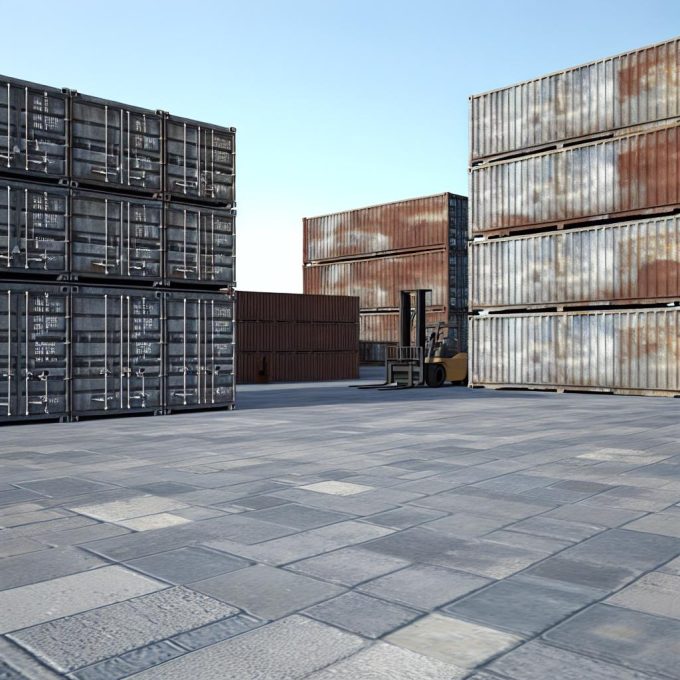Introduction to Metal Containers for Industrial Storage
Metal containers serve as an integral part of industrial storage solutions. Their widespread use across different industries can be attributed to their inherent durability and versatile applications. These containers provide an efficient and reliable means of storing a vast range of materials, including liquids, gases, and bulk goods. Their robust nature offers significant advantages, especially in industries where safety and longevity are critical factors.
Types of Metal Containers
Understanding the different types of metal containers available is crucial, as each type is tailored to meet specific industrial needs. The most common varieties include steel drums, aluminum crates, and stainless steel tanks. Each type has distinct characteristics and benefits that cater to different storage requirements.
Steel Drums
Steel drums are widely utilized for the storage and transportation of liquids. Their cylindrical design facilitates easy handling and stacking, allowing for efficient space utilization within storage facilities. The solid construction of steel drums provides excellent protection against external elements, significantly minimizing the risk of leakage. This makes them ideal for industries handling large volumes of liquid materials or those requiring robust containment solutions.
Aluminum Crates
Aluminum crates offer a lightweight alternative to steel drums, providing superior resistance to corrosion. This trait is particularly beneficial in environments with high moisture levels, where corrosion can be a significant concern. The lightweight nature of aluminum crates enhances the ease of transport and handling, which can be a critical factor in industries that prioritize these features for operational efficiency.
Stainless Steel Tanks
Stainless steel tanks are preferred in industries that necessitate the safe storage of chemicals or food products. Their resistance to rust and corrosion makes them ideal for maintaining a sterile environment crucial for preserving the quality of sensitive materials. Additionally, stainless steel tanks can withstand high temperatures, which is essential for certain industrial applications such as food processing or chemical manufacturing.
Advantages of Using Metal Containers
The use of metal containers in industrial settings offers numerous advantages, making them indispensable for many operations. One of the primary benefits is their durability, which ensures a long lifespan and minimizes the need for frequent replacements, resulting in cost savings over time. Furthermore, metal containers offer versatility in their ability to accommodate various materials such as solids and liquids, while withstanding differing pressure and temperature conditions.
The protection provided by metal containers is another significant advantage, safeguarding stored materials from pests, contamination, and environmental factors. This level of protection is particularly crucial when the materials in question are valuable or hazardous, as it helps maintain their integrity and safety.
Considerations for Selecting Metal Containers
Choosing the appropriate metal container involves careful consideration of several factors. The nature of the material to be stored is a primary concern, as is the prevailing environmental condition and specific regulatory requirements that must be met. For instance, when storing hazardous chemicals, it’s vital to opt for containers that adhere to particular safety standards and regulations.
Other essential considerations include evaluating the durability and capacity of the containers to ensure they align with the operational demands of the industrial context. Practical considerations such as budget constraints and logistical factors, including transportation and available storage space, should also influence the selection process.
Maintenance and Care
Maintaining and caring for metal containers is critical to ensuring their longevity and continued efficiency. Conducting regular inspections to check for signs of damage or corrosion is essential. It’s also important to follow proper cleaning procedures to prevent contamination that could compromise the stored materials.
Proactive maintenance practices can significantly extend the lifespan of metal containers, enabling them to provide dependable storage solutions in a variety of industry applications. This, in turn, supports optimal operational efficiency and safety standards.
Conclusion
In conclusion, metal containers play a vital role in the domain of industrial storage, offering unparalleled durability and protection for diverse materials. By understanding the available types, recognizing their advantages, and considering the essential factors for their selection and maintenance, industries can enhance their storage solutions. This ensures both efficiency and safety are maintained in their operations, ultimately contributing to the successful management of industrial resources and processes.

